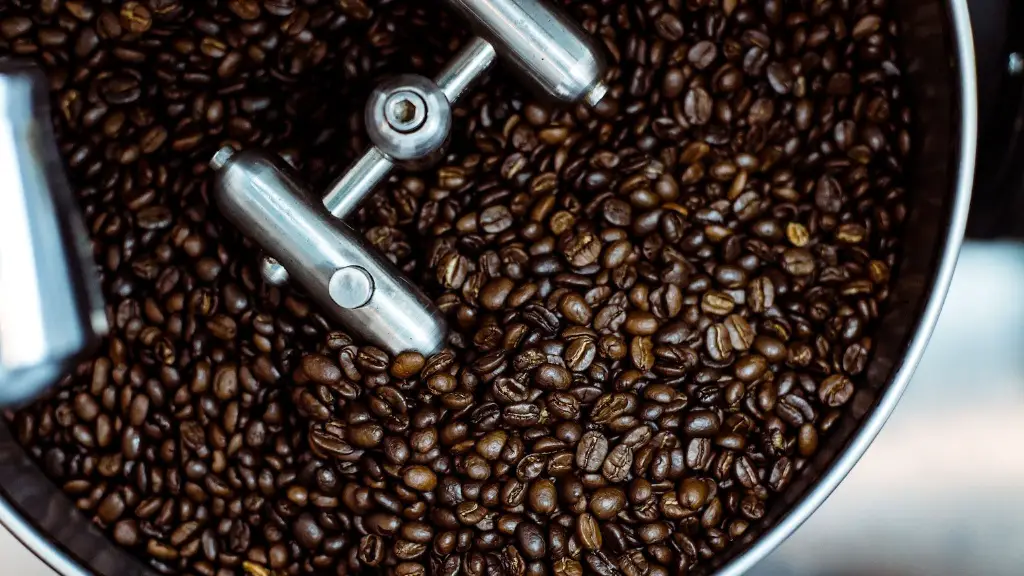Lately, people seem to be debating on whether you should drink black coffee before a workout. It is true that there are some potential benefits associated with black coffee, but should you really be having it before going on a run or lifting weights? To make the right decision, you need to understand how caffeine affects your body before, during, and after your workout. This article will break down the potential pros and cons of drinking black coffee before a workout to help you make an informed decision.
Firstly, it is important to consider the effects caffeine can have on your body. According to the NHS, caffeine is a stimulant that can help people feel more alert or energized and can give athletes an edge by helping them perform better and last longer during exercise. Caffeine can also increase adrenaline levels in the body, which can lead to faster reaction times and better performance.
While many athletes use caffeine for a pre-workout boost, there are some risks associated with drinking black coffee before a workout. According to HealthLine, caffeine can cause dehydration and increase heart rate, which can potentially cause long-term health problems if not monitored properly. Additionally, people who drink too much caffeine may experience headaches, dizziness, and even stomach upset.
Dr. Douglas Robertson, a physician and sports dietitian, advises that those who choose to drink black coffee before a workout drink it in moderation. “Caffeine can give you an edge if you are working out at a moderate to high-intensity level,” he says. “But drinking too much can lead to adverse effects that can affect your performance and overall health.”
Dr. Robertson also recommends that athletes drink black coffee containing only natural sources of caffeine, such as dark roasted coffee beans or green tea, rather than consuming energy drinks or pre-packaged coffee drinks. Natural sources of caffeine offerings a lower dose and less refined caffeine, which can provide a more consistent, longer-lasting energy boost.
Ultimately, whether you decide to drink black coffee before your workout is up to you. However, it is important to remember to drink in moderation and consider the potential benefits and risks before consuming caffeine. By taking the time to understand how caffeine affects your body, you can make an informed decision and achieve the best results.
Need for Monitoring During Exercise
Once you have decided to drink black coffee before a workout, it is important to monitor your body for any signs of adverse effects. According to the Mayo Clinic, people who are sensitive to caffeine or who are prone to dehydration should be especially cautious when drinking black coffee before exercising.
Christopher Kurek, a certified personal trainer, advises that athletes should drink black coffee in moderation and pay attention to their bodies. “Caffeine can enhance exercise performance, but it can also cause dehydration, restlessness, and even shaky hands,” Kurek explains. “That’s why it’s important to pay attention to how your body reacts to caffeine and make sure that you are drinking enough water to stay hydrated.”
Kurek suggests that athletes should also monitor their performance when drinking black coffee. He believes that those who notice an improvement in their exercise performance after drinking black coffee should consider adding it to their pre-workout routine. However, if they start to notice a decrease in performance after drinking black coffee, they may want to consider cutting it out of their routine.
Whether your performance improves or not, Kurek recommends that people should always drink in moderation and be aware of their body’s reaction to caffeine. “No matter how well you think it may be working, it’s important to remember that too much caffeine can lead to adverse health effects,” he says. “So if you are going to drink black coffee before a workout, make sure you’re paying attention to your body and limiting your intake.”
Fitting Caffeine Consumption into a Balanced Diet
When it comes to incorporating caffeine into a balanced diet, experts agree that moderation is key. According to the Dietary Guidelines for Americans, healthy adults should not consume more than 400 mg of caffeine per day, which is equivalent to four 8-ounce cups of coffee.
Although four cups of coffee may seem like a lot, those who choose to drink black coffee before a workout should be aware that other caffeinated beverages and foods, such as tea, chocolate, and energy drinks, contain caffeine as well. Therefore, it is important to keep track of how much caffeine you consume throughout the day to make sure you do not exceed the recommended amount.
It is also important to understand that caffeine can be habit-forming and that people can experience withdrawal symptoms if they have too much caffeine or if they stop drinking it abruptly. That’s why experts suggest changing up your caffeine intake on a weekly basis to avoid any negative effects from caffeine addiction.
Although four cups of black coffee may sound like a lot, it is important to keep in mind that four cups of black coffee is about the same amount of caffeine an athlete would get from drinking an energy drink or an 8 ounce cup of caffeinated tea. Therefore, it is still possible to get the pre-workout energy boost you need without exceeding the daily allowance.
Effect of Caffeine on Sleep
It is also important to consider how caffeine can affect your sleep. According to the National Sleep Foundation, caffeine can reduce the amount of deep sleep you get each night, which can lead to fatigue, irritability, and decreased cognitive performance during the day.
Dr. Mark Rosekind, a sleep specialist and expert in the field of sleep and performance, believes that athletes should be mindful of their caffeine intake. “Caffeine is a powerful stimulant,” he says. “Too much of it can affect your sleep and your performance the next day. That’s why it’s important to pay attention to your caffeine intake to ensure you get the best performance results.”
To maximize your performance without sacrificing sleep, Dr. Rosekind recommends that athletes should limit their caffeine intake to no more than two cups of coffee per day. Additionally, he believes that athletes should try to time their caffeine intake at least six hours before bed to avoid disrupting their sleep.
The Final Answer
In conclusion, there is a potential benefit to drinking black coffee before a workout as it can help you feel more alert and energized during your exercise session. However, it is important to remember to drink in moderation and monitor your body for any adverse effects. Additionally, taking the time to incorporate black coffee into a balanced diet and managing your caffeine intake throughout the day can help you get the most out of your pre-workout coffee without sacrificing your sleep.




